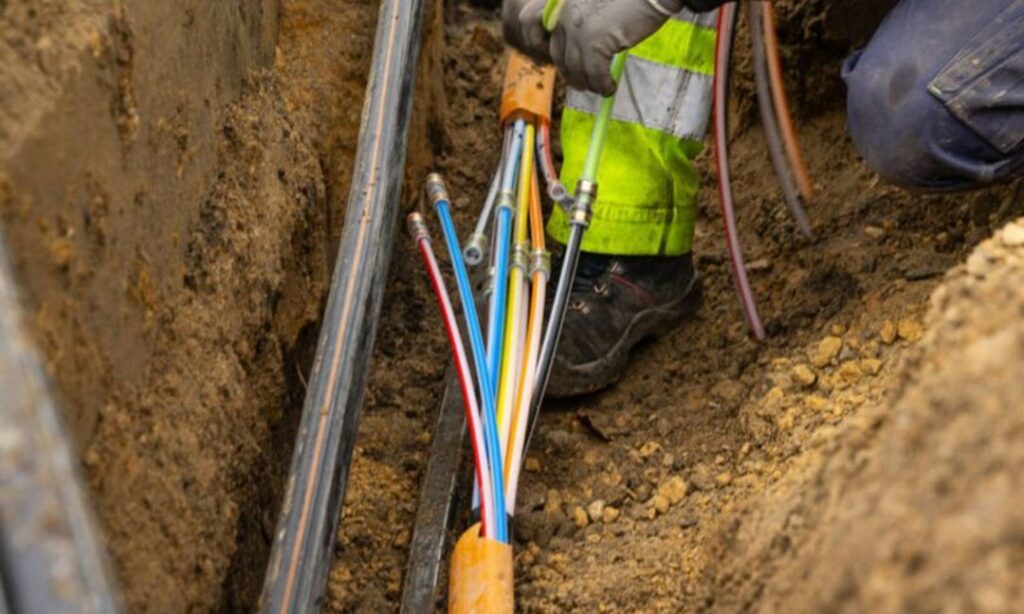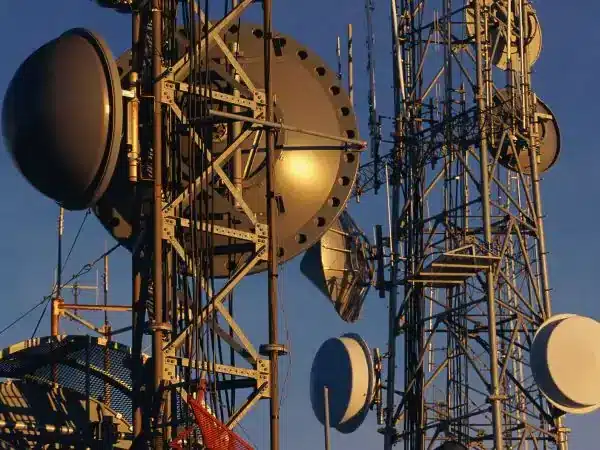In Nigeria today, the simple act of making a phone call or browsing the internet carries a backstory of struggle that most consumers never see. Behind every clear voice call or smooth mobile money transfer lies a telecoms operator fighting daily battles with diesel bills, failing power infrastructure, vandalised cables, and unstable government policies.
The National Bureau of Statistics (NBS) recently reported that telecoms contributed 14.4 percent to Nigeria’s GDP in the first quarter of 2025. On paper, this positions the industry as one of the most vibrant contributors to the economy. In reality, however, insiders are warning that the sector is being pushed towards breaking point by a worsening power crisis.
MTN Nigeria’s Chief Operating Officer, Ayham Mousa, did not mince words when he addressed stakeholders at GITEX Nigeria 2025 in Abuja. He revealed that between 20 and 30 percent of telecom operators’ expenses go directly into powering base stations, and that 70 percent of network downtime is tied to power supply challenges.
This is not just an inconvenience. It’s a safety risk. Nigerians depend on their phones not just for leisure but for banking, work, education, and even emergency response. “If a mother in Kano cannot reach a hospital in an emergency because her network is down due to a blackout, that’s more than a telecom problem—it’s a life-and-death issue,” Mousa emphasised.
But power cuts are only part of the picture. He also revealed that MTN Nigeria recorded over 5,700 fibre cuts in six months. Sometimes these were the result of road construction, other times deliberate vandalism. Whatever the cause, the end result is the same: dropped connections, angry customers, and lost trust.

Table of Contents
Diesel Dependency: The Expensive Lifeline
In the absence of reliable electricity, telecom operators have resorted to diesel generators as their primary lifeline. While this keeps the towers running, it comes at a punishing cost.
The Nigerian Communications Commission (NCC) has revealed that telecom base stations consume over 40 million litres of diesel every single month. At current prices, this translates into tens of billions of naira spent just to ensure Nigerians can make calls, send WhatsApp messages, and access the internet.
This dependence is proving unsustainable. Diesel prices have been on a rollercoaster in the past two years, following the removal of subsidies and volatility in global oil markets. For many operators, fuel costs now make up the single largest portion of their operational expenses.
Professor Aminu Maida, the NCC’s Executive Vice-Chairman, admitted that the ongoing reliance on diesel is a ticking time bomb. “If we do not diversify the energy base of telecoms infrastructure, we risk pushing the sector into crisis,” he warned.
There is some hope that the newly operational Dangote Refinery may help stabilise local diesel supply and prices. Yet experts stress that Nigeria must look beyond diesel if it hopes to secure its digital future. Renewable energy, hybrid power systems, and partnerships with the national grid are all being explored, but progress remains painfully slow.
The Triple Threat: Vandalism, Fibre Cuts and Right-of-Way Barriers
Energy problems are compounded by physical and regulatory obstacles. Nigeria currently has around 40,000 kilometres of fibre-optic cable laid across the country, a critical infrastructure backbone for broadband expansion. But the cables are under constant threat.
On one hand, there are accidental cuts caused by road construction, housing projects, or even routine digging by utility companies. On the other, there is deliberate vandalism and theft of infrastructure by individuals looking to make quick money. Each fibre cut can disrupt service to entire communities for hours or even days, leaving operators scrambling to carry out expensive repairs.
Then there is the headache of Right-of-Way (RoW) charges. Ideally, state governments should harmonise these fees to make fibre expansion seamless nationwide. Instead, operators face a patchwork of inconsistent and often exorbitant charges. In some states, fees are so high that companies simply abandon expansion plans, leaving rural areas underserved.
The result is a stunted digital ecosystem where millions of Nigerians, particularly in rural and semi-urban areas, remain excluded from reliable internet access. As Mousa lamented, “It is not just infrastructure under attack. It is the dream of digital inclusion for every Nigerian.”

The Bigger Picture: What’s at Stake for Nigeria
Nigeria is often described as Africa’s largest mobile market, and rightly so. With over 220 million people and mobile penetration rates above 90 percent, the telecoms sector is the gateway to financial inclusion, education, e-commerce, and governance.
But if energy challenges, vandalism, and regulatory inconsistencies continue unchecked, the very backbone of Nigeria’s digital future could buckle. Broadband expansion may stall, mobile banking could face interruptions, and the country’s ambitious plans to build a digital economy worth billions may be thrown off course.
Telecom operators find themselves caught in a cruel balancing act. On one side, they are under pressure to keep tariffs affordable in a country where disposable incomes are shrinking due to inflation. On the other, their operational expenses are ballooning, driven largely by fuel, fibre repairs, and regulatory levies.
Consumers are already feeling the strain. Dropped calls, slow internet speeds, and unexplained service outages are becoming all too common. For students relying on online classes, entrepreneurs running businesses on Instagram, or farmers using mobile apps to track market prices, these disruptions are more than a nuisance—they are lost opportunities.
Stakeholders argue that Nigeria needs a three-pronged solution. First, there must be a clear roadmap for energy diversification in telecoms, with investment in solar, hybrid, and cleaner grid solutions. Second, governments at all levels must harmonise Right-of-Way charges and provide stronger protection for infrastructure. Third, industry regulators must push for collaboration between operators, construction firms, and state authorities to prevent fibre cuts.
Without these steps, experts warn that Nigeria risks sliding backwards, losing the hard-won gains of the past two decades in digital connectivity.

Conclusion: A Call for Collective Action
Nigeria’s telecoms sector has shown resilience before. It grew from less than one million lines in 2001 to over 200 million active lines today. It has created jobs, unlocked innovation, and connected communities. But the current power crisis and its ripple effects are testing that resilience like never before.
For the average Nigerian, the story of telecoms may seem distant—until the moment they cannot reach a loved one, make an urgent bank transfer, or attend an online class because of “no network.” At that moment, the industry’s struggles become deeply personal.
What happens next will depend on whether government, industry, and consumers can push for solutions that go beyond short-term fixes. The truth is simple: if Nigeria wants a digital economy that works, it must first ensure the power to keep its telecoms alive.
Join Our Social Media Channels:
WhatsApp: NaijaEyes
Facebook: NaijaEyes
Twitter: NaijaEyes
Instagram: NaijaEyes
TikTok: NaijaEyes
















![Naira Marley Shocked as Fan Attacks Him On Stage During Intense Cotonou Concert [VIDEO] Niara Marley](https://naijaeyesblog.com/wp-content/uploads/2025/03/Naira-Marley-180x135.avif)






















